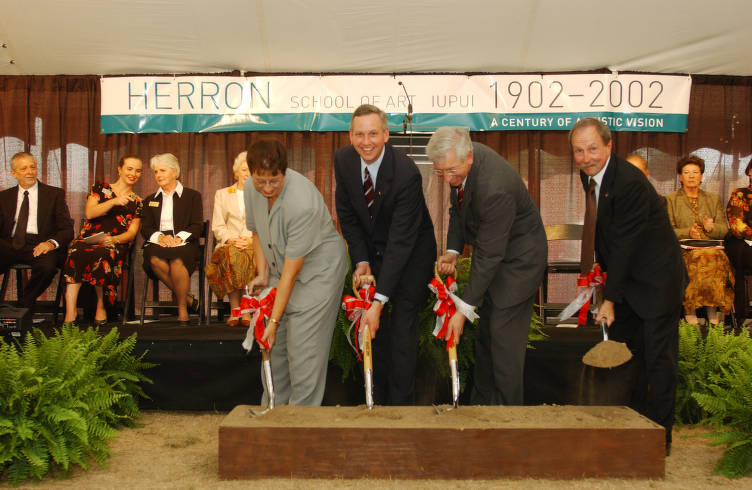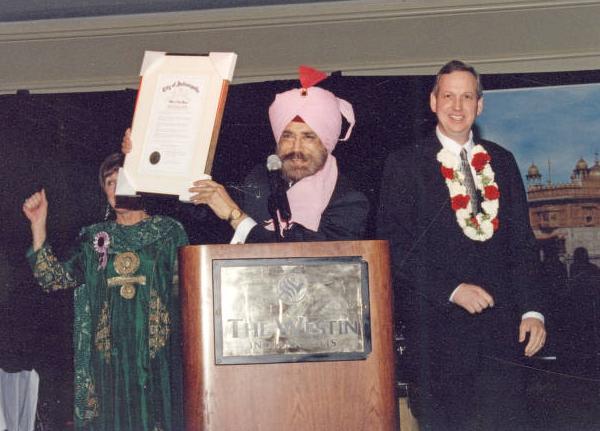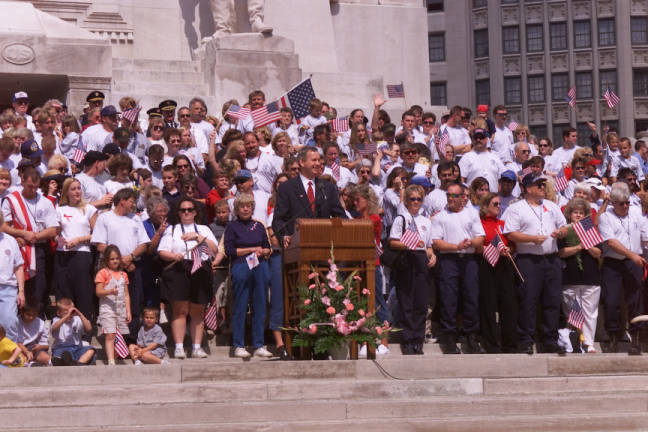A former Chief of Staff for Indiana Governor Evan Bayh, Bart Peterson was born, raised, and educated in Indianapolis. The first Democrat elected mayor of Indianapolis in the post-Unigov era, his administration was notable for its advocacy of the arts, educational reform, and initiatives to create a biotech industry hub in the city.

Peterson’s advocacy of charter schools made him unique nationally and within educational circles. In 2001, the Indianapolis Mayor’s office became the first in the country to authorize . This power helped the exercise some influence over education in the city, which was something that Peterson’s predecessors had sought for decades. This power did not come without controversy, but the progress in this realm led to the creation of the , a think tank advocating educational reform, in 2006, headed by David Harris. Charting this position endeared Peterson to school reformers on both sides of the aisle.
The administration’s advocacy for the creation of a biotech hub was the culmination of decades of work to help provide an identity for the city beyond its sports strategy. The initiative gained new momentum with the creation of in 2002. This initiative helped to galvanize a number of businesses throughout the metropolitan area and set the stage for subsequent growth in health-related sectors.

The administration was also important in its advocacy of the arts. Early in the first term, the administration established six arts and throughout the city. These designations helped bring coherent identity to subunits of the city, tapped into the existing arts community, and linked cultural development to capital development. The most visible accomplishment in this area was the , which broke ground in 2007 following a development campaign spearheaded by Central Indiana Community Foundation president Brian Payne. A collaboration among multiple entities, the trail revolutionized the downtown area when completed in 2013 by linking parts of the city that had previously lacked coherent connection.
Peterson notably helped further consolidate some city services as part of an initiative he called Indy Works. The major accomplishments were in merging the ’s office with the and further consolidating some of the township fire departments and other units government provided on the township level. Reminiscent, on a smaller scale of , the consolidations created greater efficiencies in government but also faced significant political opposition from entrenched officeholders.

Other major accomplishments during the administration included the completion of , which became a model for urban housing redevelopment throughout the Midwest, securing funding for (which was a move designed to keep the in the city), and the first efforts toward envisioning regional transit initiatives.
Peterson also was mayor on September 11, 2001, which tested leadership throughout American localities. He made a special plea to members of the community not to blame any people of a particular faith. While urging this public unity, Peterson recognized that the terrorist attacks would fundamentally reshape the way that American cities were governed, with increased emphasis on public safety and its increased costs.
The Peterson Administration came to an unexpectedly abrupt end when dark horse Republican challenger upset the incumbent mayor during his quest for a third term in 2007. Much of the voter unrest hinged on unpopular property tax increases that had been implemented in 2007. As housing prices dropped, property taxes in parts of the city increased dramatically. This helped create an atmosphere for voter dissatisfaction, upon which Ballard ultimately capitalized. Peterson remained influential in the Indianapolis area, where he worked for before becoming president and CEO of International in October 2018.

Help improve this entry
Contribute information, offer corrections, suggest images.
You can also recommend new entries related to this topic.

